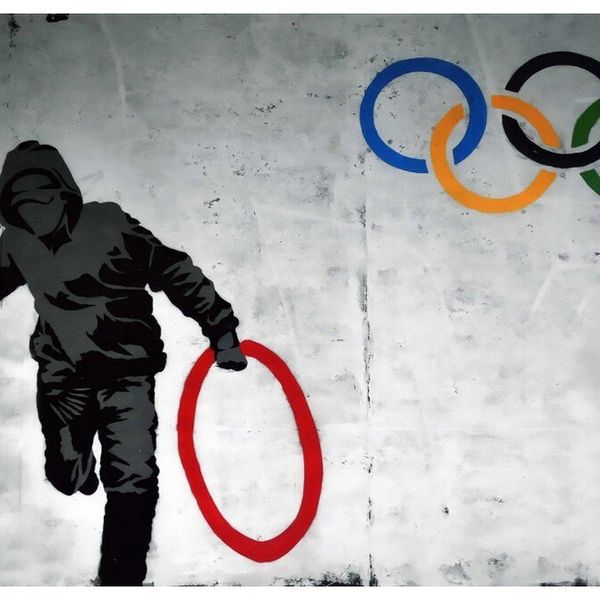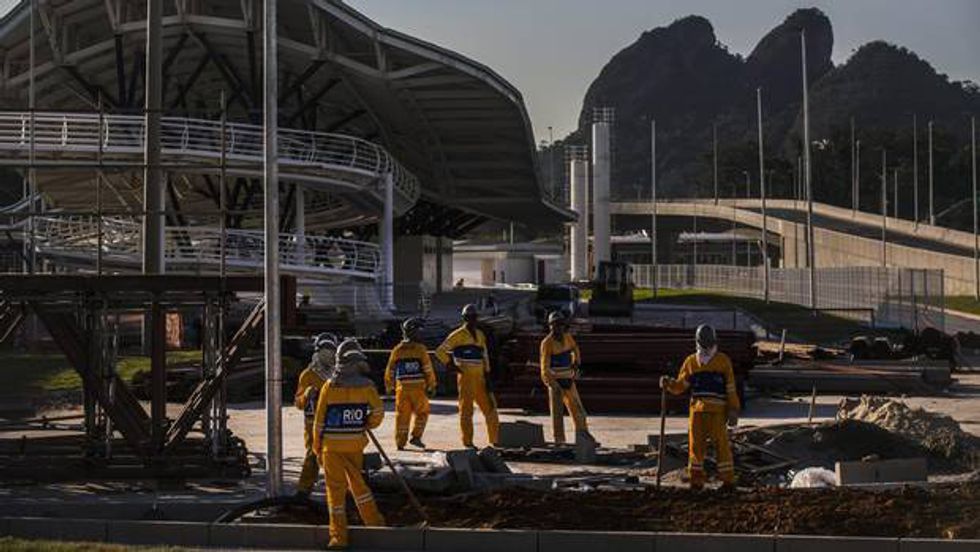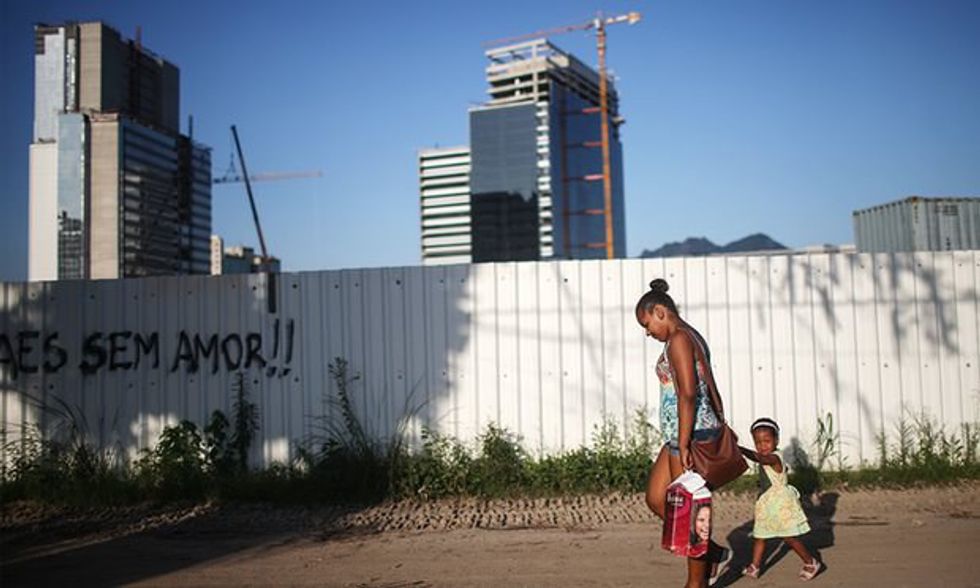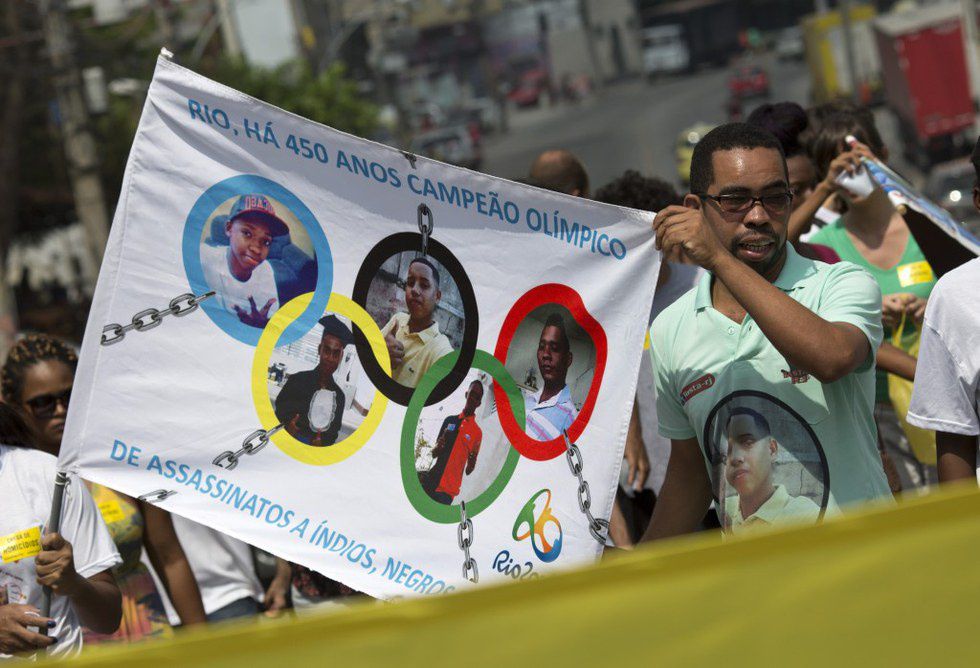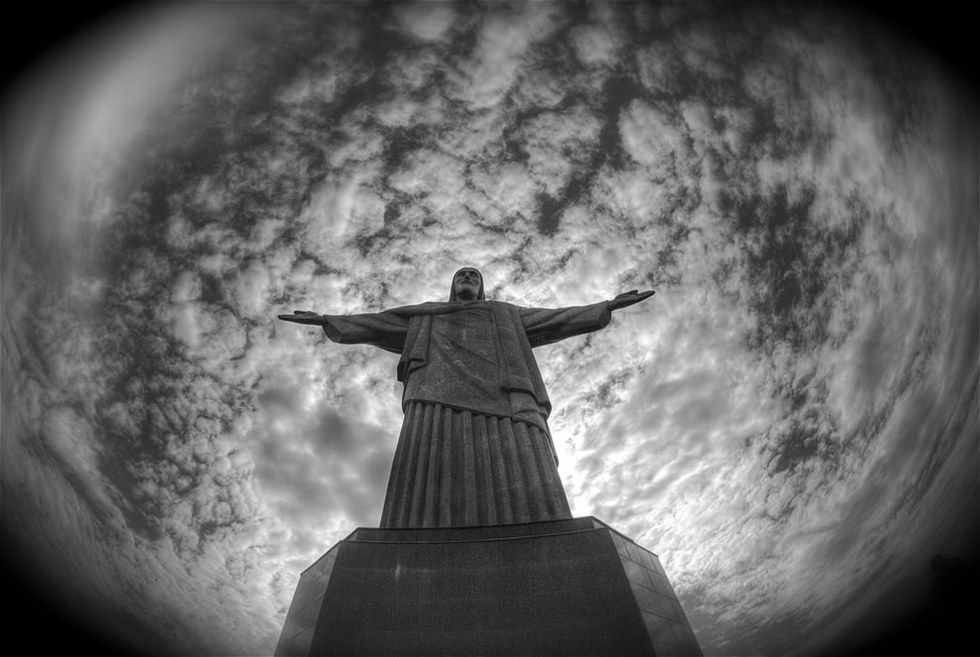There's no question that Rio has had to jump over many hurtles to make these games happen. While major media outlets are writing on whether the venues will be completed and the medal counts, the real struggle isn't the ones the Olympic athletes have to face, it's the ones Brazil's citizens must deal with during and after the games conclude.
Killed workers during Olympic construction.
According to ESPN, an estimated 11 workers have died while working on the Olympic facilities. You may be asking, "Yeah, but construction is dangerous. This has to have happened before, right?" The answer would be rarely do deaths occur, when they do though, it's only one or two people.The auditor for the Rio Olympic games works, Elaine Castilho, noted that in the 2012 London Games there were no worker deaths reported.
Families evicted from homes, making room for venues.
Three hundred and eighty-five local families were ordered to leave by City Hall to clear way for a high-speed bus line. This doesn't include the families evicted for the other venues as well. One family displaced, the Josés, were left with no compensation for property taken. The Guardian notes, "Complications over the legal status of the property mean the Josés have yet to receive any compensation. And with no money, the family has moved to an area where the rent is affordable, over 30km away from their original home."
The City Government has estimated that since 2009, roughly 22,059 families have been relocated in order to make room for new infrastructure, transportation plans or clear away "at risk" housing.
Jane Nascimento de Oliveria, a resident living in Rio de Janeiro, explains: "The stress has made me sick." She used to live in a safe, drug-free area until her neighbors' homes were bulldozed. Soon after witnessing this, she herself was served an eviction notice.
In April 2015, Rio mayor Eduardo Paes signed a decree which called for the urgent removal and relocation of remaining property on the area he declared to be "public utility." Compensation was agreed to be discussed later by court, something which still has yet to happen.
Deadly police force.
There's no question that Police in Brazil are extremely corrupt. Just looking back at their past elections, corruption and embezzlement have been major political topics. In a report done by Amnesty International police killings have risen 54 percent in the city, 10 percent of that increase was during the first three months of 2016.
On July 24 Jason Lee, a jiu-jitsu athlete from New Zealand, tweeted this:
While he was driving in Rio an armed policemen made him pull over. Once Jason stopped, he was dragged into an unmarked police car, Stuff explains. He was then forced to visit multiple ATMs and withdraw hundreds of dollars.This is just one of the many encounters travelers are facing with Rio police, thankfully for Jason he was safe after the encounter, others haven't been so lucky.
Financial emergency.
Two months before the games began, Rio's governor declared a state of financial emergency and requested federal funds. With global oil prices rapidly falling and Olympic obligations Rio must oblige by, they're only sinking deeper into the recession they're currently in.
Al Jazeera explains that many government workers, including police and teachers, are seeing their paychecks delayed. Pensions are also going unpaid which is resulting in a lot of protest.
So, with all these financial cuts, are travelers and citizens safe? I'll let you decide on that however with a 30 percent cut in Rio's security budget, homicides and assaults are on the rise. Although, even without the cuts, would you trust the security there?


